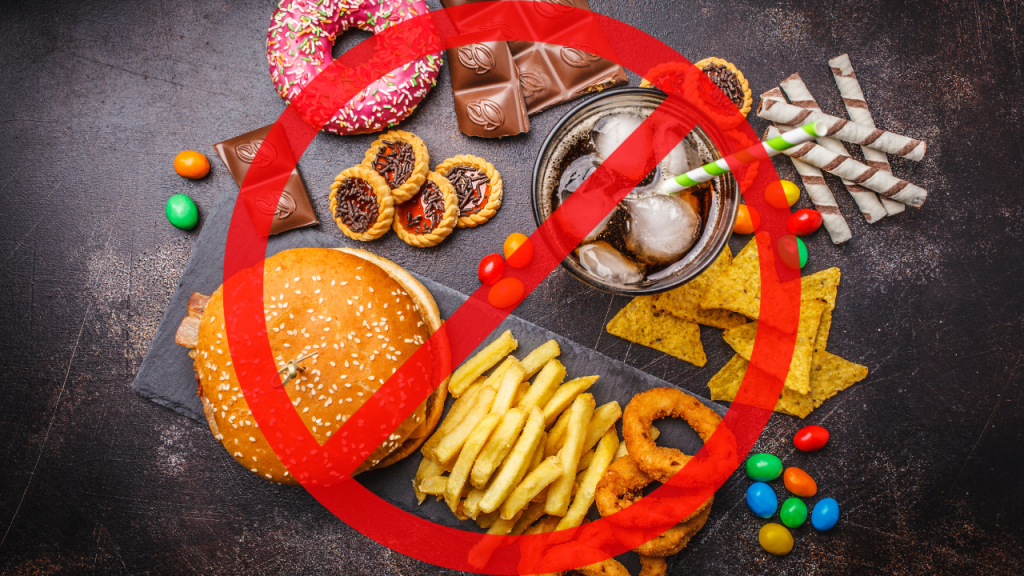Research Reveals: There have been big changes in the food business in the past few years, which is why there are so many processed foods in our supermarkets. Many people can’t live without these easy-to-use and often-treat-yourself items, but a new study shows they may be more addicting than we thought. People have long said that processed foods are bad for you because they are high in salt, sugar, and fat. A new study, on the other hand, says that these foods may be just as addicting as nicotine and booze. This shocking discovery has major effects on public health and makes us think deeply about how we eat these days.
The Hidden Culprits in Processed Foods

Before we talk about how prepared foods are addicting, it’s important to know what makes them so appealing. These foods usually have three things in them that make them very addicting: sugar, salt, and fat. The taste buds feel like they’re on cloud nine when these things come together, and it can be hard to say no. A lot of prepared foods are also made to have the perfect “bliss point,” which is the right amount of sugar, salt, and fat to make you want more. Think about your favorite cookies or potato chips. They’re made to keep you eating.
The Brain’s Reward System
To understand why prepared foods are so addicting, you need to know how the brain’s reward system works. Our brains generate dopamine, a neurotransmitter linked to pleasure and reward, when we eat or drink something that makes us feel good. Over time, these pleasurable events can change the way our brains are wired to make us want them over and over again. This is the first trouble with processed foods.
The Addictive Trinity: Sugar, Salt, and Fat
Processed foods are carefully made to mess with the brain’s reward system. The three things that make processed foods so addicting are sugar, salt, and fat. Sugar releases dopamine, which makes you feel good, while salt brings out the tastes and fat makes your mouth feel full. This group of three makes a strong trio that keeps people wanting more. As long as people are looking for pleasure in food, the circle will never end.
The Yale Food Addiction Scale
Processed foods are scientifically proven to be addicting, not just based on personal experience. The Yale Food Addiction Scale (YFAS) was made by researchers to find out if someone has signs of food addiction. This scale is based on the criteria used to identify drug addiction. It looks at behaviors like eating more than planned, trying to cut down but failing, and continuing to use even though it hurts you. These are all common signs of addiction.
Food Addiction: A Public Health Concern

It’s a big problem that prepared foods are so addicting. The World Health Organization (WHO) says that obesity is one of the most important health problems of the 21st century. Processed foods are a big part of this problem. The fact that these foods are so easy to become addicted to has led to more people getting overweight, diabetes, and heart disease.
The Parallels with Substance Addiction
To really understand how bad the problem is, it’s important to see how food addiction is similar to drug addiction. People with a high YFAS score may feel like they have no control over their eating habits and may experience cravings, tolerance, withdrawal, and loss of control, just like people who are hooked to drugs like alcohol and nicotine. Certain processed foods, especially when eaten in large amounts, can be bad for your health.
The Impact on Mental Health
It’s not just bad for your health that prepared foods are addicting. It can also be bad for your mental health. People who are addicted to food may feel guilty, ashamed, and low in self-esteem, which can make them eat when they’re feeling down. In turn, this makes the drug and mental health problems worse.
Children and Food Addiction

The concern about food addiction is not limited to adults. Children are particularly vulnerable to the allure of processed foods. The marketing strategies employed by the food industry often target young audiences, making it challenging for parents to guide their children toward healthier choices. The consequences of food addiction can have long-lasting effects on a child’s health and development.
Also Read: Beyond Antibiotics How Bacteriophages as Agents Contribute to Cellular Health
Breaking the Chains of Food Addiction
Getting over a food addiction is a difficult process that involves a lot of different moving parts. It frequently needs a combination of adjustments in one’s patterns of behavior, psychological support, and availability to healthier food choices. It is critical to both recognize the symptoms of addiction and get help from a trained expert.
Cultivating Healthy Eating Habits
Developing good eating habits is the most important thing you can do to fight food addiction. Cutting back on prepared foods and eating more fresh, whole foods is one way to do this. Having a healthy relationship with food is also part of it. Eating should not only be for fun, but also for health and nutrition.
Conclusion
Processed foods may be just as addicting as nicotine and booze, which brings to light a major public health issue. Processed foods contain a lot of sugar, salt, and fat, which can mess with your brain’s motivation system and make you want to eat too much. There are clear similarities between being addicted to food and being addicted to drugs, and the effects are terrible, making the obesity problem worse around the world.
